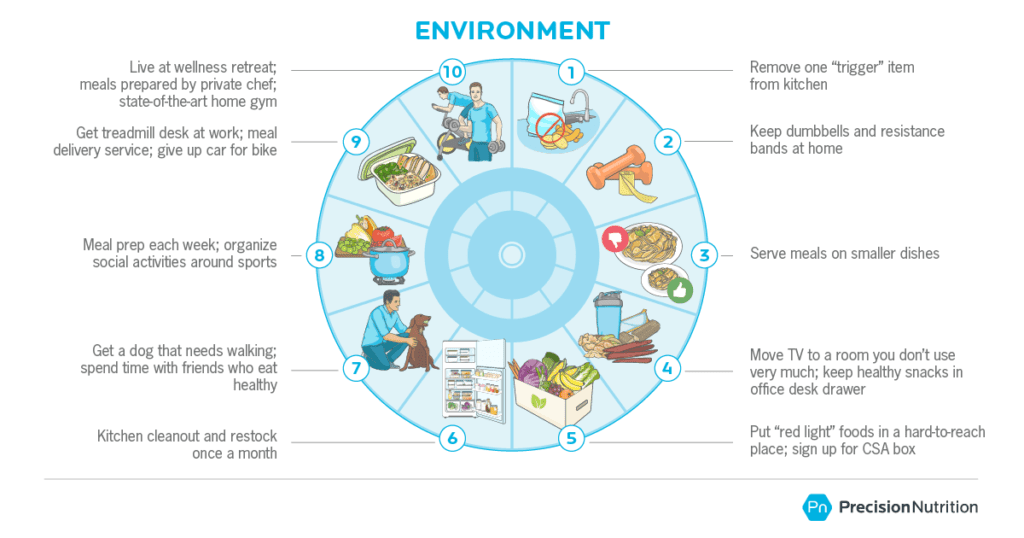The memo came on a Friday.
My close friend—let’s call her Beth—had been pulling 12-hour shifts as a hospital screener in the early throes of COVID-19.
With a draining and stressful job, an energetic 2-year-old, tensions at home, and the intense emotional upheaval of a global pandemic, Beth was completely spent.
Her schedule was crammed to the minute. Days were fueled by coffee, evenings by wine. “Sleep” meant tossing and turning with anxiety. Exercise felt impossible.
Previously a runner and rock climber, Beth hardly recognized herself. It felt like she’d aged a decade in just a handful of months.
So on this particular Friday, after an especially exhausting shift, Beth arrived home, turned off the car, and sighed.
While trying to summon the energy to get out of the car, she picked up her phone and, on autopilot, checked her email.
And there it was: a well-meaning memo from her employer offering self-care strategies to its stressed-out staff. It concluded:
“Use your time at home to RELAX and RECHARGE.”
Beth threw down her phone. Her head slumped to the steering wheel, and tears burned her eyes.
“Relax and recharge?” she scoffed when she told me about this later.
“My time ‘off’ is for taking care of my kid, cooking, cleaning, bringing the cat to the vet, and a million other to-dos. I’m lucky if I get a few hours of sleep. Home is not a place to recharge. It’s Job #2.”
If self-care advice makes you want to smash your phone—in anger, sadness, or shame—we’re with you.
Now more than ever, folks have more responsibilities and obligations than they can possibly manage.
Advice like “put your feet up with a good book” or “schedule a massage” sounds trite or even absurd when you’re trying to answer emails, empty the dishwasher, and keep a daring toddler from hurling herself off a bookcase.
And yet.
Folks still do want to prioritize their health and wellbeing, which creates a frustrating paradox where self care feels both more needed, and more impossible, than ever.
“For the people who do find a way to take time for themselves, the difference is remarkable,” says Precision Nutrition Coach Pam Ruhland.
What we’ve seen from coaching over 150,000 clients is that even folks with the biggest barriers and toughest schedules can end up thriving: moving better, feeling better, looking better, and generally operating more like the person they want to be.
If you’re having a hard time taking care of yourself, or you’re coaching someone who is, here are three strategies we’ve seen work—in real life.
Challenges with self-care aren’t just personal. They’re systemic.
Self care is harder for some than others.
For example, the COVID-19 pandemic has highlighted the stark differences in people’s job safety, workload, and flexibility—affecting the time, energy, attention, and other resources available for self-care.
And we know that women carry the brunt of domestic, parenting, and emotional labor; are paid less on average; and often work more hours to build professional credibility and seniority.
COVID has made this situation worse: Data suggest1 2 that regardless of their employment situation, women are putting in more hours doing housework and child care than before the pandemic.
Furthermore, people from marginalized groups—including racialized peoples, people with disabilities and mental health issues, and people with lower incomes and less financial security—have additional barriers to taking care of themselves and their health.
While we’d love to address all those problems with this article, we’ll focus on what we do best: Helping coaches and individuals improve their health.
We can’t solve the systemic issues in one go, but we can acknowledge them while providing solutions you and your clients can use today.
3 strategies for prioritizing self care even when it’s really, really hard
Strategy #1: Start with just 5-10 minutes per day.
I recently chatted with another friend of mine, who I’ll call Laura. She’s currently enrolled in multiple certifications, runs her own counseling business, works part-time at a shelter, and has two children and four pets. (Oh, and she’s juggling all this during a pandemic, of course.)
Laura lamented to me that she habitually wakes up, grabs her phone, and dives into her business’s Instagram feed before she even gets out of bed.
I asked if she’d consider taking a little time for herself in the morning to say, read a book.
“Sure,” she said. “I’d love to wake up each day and read, meditate, do yoga, and have a leisurely breakfast with my kids… but it’s just not happening.”
Laura’s reaction might seem almost comical—how did taking a few minutes to read turn into that?—but so many of us can get caught in an all-or-nothing mindset.
“I try to encourage clients to focus on activities that are truly doable for them,” advises Ruhland.
“This can be anything that moves you forward: a five-minute meditation; having older kids help in the kitchen so you can read a news article; adding an extra veggie serving to one meal; or doing 10 minutes of online yoga. Whatever gives them a taste of, ‘this is for me.’”
Five minutes a day might not feel like enough time, but it can help you start to show up for yourself (it helps family and friends get used to it, too).
And if you’re used to doing nothing, just doing something can feel surprisingly good.
How to try it:
- Make a list of small, 5-minute activities that would help you check the “self care” box.. Pick ONE to try every day for a couple weeks.
- After that, consider adding more minutes, or another short self-care activity, to your routine.
- Remember: Self care isn’t just about nutrition and exercise. It’s also about your emotional and mental health, the people around you, your environment, and your overall outlook on life. (We call this “deep health.” Learn more about it here.)
Strategy #2: Embrace the three Ds: Delete, Delegate, Do Less.
It’s 6 a.m. and your alarm goes off.
You blink.
Suddenly it’s 6 p.m., the kids need dinner, the dog needs to be walked, your boss is waiting on those TPS reports…
Where the heck did the day go?
If this is you, PN Coach Dominic Matteo recommends grabbing your schedule and a Sharpie… and getting ruthless.
(Friendly nudge: This might involve reassessing your boundaries with loved ones, and/or asking them for help.)
How to try it:
- Get clear on exactly how you’re spending your time. Hint! Use PN’s Planning & Time Use Worksheet (or keep a time diary for a day) to get granular. Now you’re ready to scrutinize.
- Delete one or more activities. Are there obligations that aren’t actually necessary? Habits (TV, TikTok) that actually don’t serve you anymore? What would happen if a given task doesn’t get done at all? What might be the worst outcome?
- Delegate whatever you can. Consider each task and ask yourself, “Who else can do this?” Could your partner pack the lunches? Could a neighborhood kid cut the grass? Can your kids fold (ahem, “fold”) their own clothes? What’s the worst that could happen?
- Do less. Challenge yourself: What is “good enough” for this thing? If you’re used to shooting for A+, then what would an “A-” or a “B+” look like?
Strategy #3: Separate your “shoulds” from your “coulds.”
Funny thing: Sometimes we’re so used to thinking about what we “should” do, we forget what we really want or need to do.
But needless “shoulds” just end up stealing our time, wasting our energy, and keeping us from feeling healthy and fulfilled.
If we take a more critical look at our “shoulds,” we might find they’re not all that necessary:
“I should let my kids help make breakfast, even though it takes longer.”
“I should put on makeup before I go to the post office.”
“I should listen to the board of education meeting.”
“I should fix that leaky pipe by myself.”
Sure, we could do those things. But should we? Are they really the most valuable use of precious time?
Similarly, there might be some erroneous “should nots” in there, like: “I shouldn’t let my kid watch TV,” or “I shouldn’t pay extra for pre-cut veggies,” or “I shouldn’t go home if my coworkers are still at their desks.”
How to try it:
- Notice and name. Next time you hear that little voice in your head saying, “you should do this…”—pause. Notice it. Name it: That’s your “should” voice. Decide if you want to keep that “should,” or let it go.
- Duke it out. Realistically, you’ll always have more valuable activities to choose from than time in the day. Want some help? Try this worksheet, Tournament of Priorities, which guides you through assessments of what’s more important to you at a given time.
Remember: You’re in charge of what you prioritize, and what trade-offs you’re willing to make. Ultimately, you get to decide what is most important to you.
It’s time to put YOU back on the list.
References
Click here to view the information sources referenced in this article.
Want help becoming the healthiest, fittest, strongest version of you?
Most people know that regular movement, eating well, sleep, and stress management are important for looking and feeling better. Yet they need help making it work in their busy, sometimes stressful lives.
That's exactly what PN Coaching does.
Over the past the past two decades, we’ve used the Precision Nutrition Coaching method to help over 150,000 clients lose fat, get stronger, and improve their physical and mental health… for the long-term… no matter what challenges they’re dealing with.
Our habit-based approach is backed by peer-reviewed research, trusted by professional athletes and elite sports teams, and has been taught to more than 175,000 health and fitness professionals worldwide through our Level 1 and Level 2 Certification programs.



Share